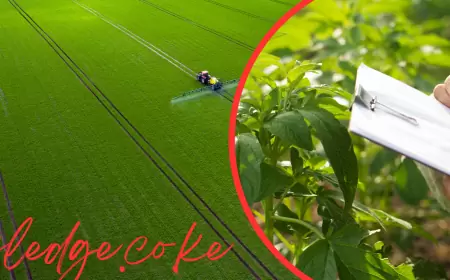Telecommunication Engineering in Kenya 2024: Courses, Universities, Job Market Trends.
Explore the comprehensive guide on Telecommunication Engineering in Kenya, covering courses, top universities, and the dynamic job market for 2024

In the dynamic landscape of technology and innovation, Telecommunication Engineering stands out as a cornerstone in Kenya's progress. It's not just about connecting people anymore; it's about fostering a digitally empowered society capable of leapfrogging into the future. This field blends electrical engineering with computer science to enhance telecommunication systems, making it pivotal in today's tech-centric world. Why, you might ask? Well, with Kenya's burgeoning tech scene, aptly dubbed "Silicon Savannah," the demand for skilled telecommunication engineers is soaring, making this discipline more relevant than ever.
But where does an aspiring Telecommunication Engineer begin in Kenya? That's precisely what this blog aims to unravel. We're delving deep into the world of Telecommunication Engineering courses, covering everything from diplomas to master's programs. You'll get a sneak peek into the universities that are the cradles of this cutting-edge education, like Jomo Kenyatta University of Agriculture and Technology and Moi University. But it's not just about where to study. We're also exploring what makes these courses tick – from intriguing subjects like Satellite Communication to the indispensable practical training that shapes a raw talent into a polished professional.
Telecommunication Engineering Courses in Kenya
Embarking on a journey in Telecommunication Engineering in Kenya starts with understanding the robust curriculum designed to shape future experts. This curriculum is a blend of theoretical knowledge and practical skills, vital for navigating the complex telecommunication industry. Core subjects form the backbone of this education. These include Analogue and Digital Systems, essential for understanding basic telecommunication principles, and Transmission Lines, which delve into the physical medium of telecom networks.
Then there are Microprocessors and Waveguide Systems, integral for grasping the hardware aspect of telecommunications. Broadcasting Engineering and Cellular Communication are pivotal, especially in a country like Kenya, where mobile connectivity is a lifeline for many. Data Communication and Digital Signal Processing are also crucial, reflecting the shift towards digital platforms. Satellite Communication and Optical Communication open doors to advanced communication technologies, while Telephony Systems and Digital Communication ensure a well-rounded grasp of both traditional and modern communication methods.
Practical Training
Theoretical knowledge alone isn't enough in the rapidly evolving field of Telecommunication Engineering. Practical proficiency is equally crucial. This is achieved through comprehensive laboratory training, seminars, engineering projects, and workshop practice. Industrial visits and attachments play a significant role, offering students a taste of real-world scenarios and challenges. These hands-on experiences are invaluable, providing insights that go beyond textbooks and lectures.
Entry Requirements
Aspiring students must meet certain academic thresholds to pursue Telecommunication Engineering in Kenya. For entry into diploma programs, a minimum grade of C in the Kenya Certificate of Secondary Education (KCSE) is typically required, with specific grades in subjects like Mathematics and Physics. Bachelor's programs often demand a higher KCSE grade, with a minimum of B- in key subjects like Chemistry, Physics, and Mathematics. These requirements ensure that students possess the fundamental knowledge and aptitude necessary for this rigorous field of study.
Universities and Colleges Offering Telecommunication Engineering in Kenya
Kenya, a burgeoning hub of technological advancement, is home to several esteemed institutions offering Telecommunication Engineering programs. These universities and colleges are not just educational establishments; they are the breeding grounds for future innovators and industry leaders in telecommunications. Let's dive into the specifics of these institutions.
1. Jomo Kenyatta University of Agriculture and Technology (JKUAT)
JKUAT stands as a beacon of excellence in engineering education. The Telecommunication Engineering course here is meticulously designed to cater to the evolving needs of the industry. The university prides itself on its state-of-the-art facilities and a curriculum that balances theoretical knowledge with practical application. JKUAT has seen a consistent increase in enrollment for this course, reflecting its popularity and the trust it garners among aspiring engineers.
2. Moi University
Another prominent name in the realm of engineering education in Kenya is Moi University. Their Telecommunication Engineering program is known for its comprehensive curriculum and hands-on training approach. The university emphasizes innovative learning, encouraging students to engage in projects and research that contribute to real-world telecommunications challenges.
3. University of Nairobi
The University of Nairobi offers a robust Telecommunication Engineering program renowned for its rigorous academic standards and extensive research opportunities. The course here is structured to provide students with a deep understanding of both foundational and advanced concepts in telecommunications, preparing them for diverse career paths in the industry.
4. Course Duration and Specifics
In these institutions, the duration of Telecommunication Engineering courses varies, typically spanning four to five years for undergraduate programs. The curriculum is designed to cover a wide spectrum of topics, ensuring that graduates are well-versed in various aspects of telecommunications technology.
Entry Requirements and Student Capacity
Entry into these prestigious institutions requires meeting specific academic criteria. Most universities demand a minimum KCSE grade of B- in key subjects like Mathematics, Physics, and Chemistry for bachelor's degree programs. These requirements ensure the selection of students with the aptitude and foundational knowledge necessary for success in this challenging field.
Marketability of Telecommunication Engineering in Kenya
The marketability of a Telecommunication Engineering degree in Kenya paints a promising picture for aspiring engineers. In an age where communication technology is pivotal, the demand for skilled professionals in this field is on a steady rise. Telecommunication Engineers find themselves at the heart of various industries, from IT companies to broadcast media, making this career path both diverse and dynamic.
Career Paths and Opportunities
Graduates in Telecommunication Engineering are not confined to traditional telecommunication companies. The digital transformation has opened doors in sectors like broadcasting, mobile communication, satellite technology, and even in the realm of the Internet of Things (IoT). Common roles include network engineers, systems analysts, broadcast engineers, and telecommunications consultants.
The versatility of this degree also allows graduates to venture into emerging fields like cyber security and data analytics, where telecommunication skills are increasingly valuable. Moreover, the growing trend of digitalization in Kenya has spurred a demand for professionals who can manage and innovate in the digital communication space.
The Role of Telecommunication in Kenya's Digital Economy
Telecommunication Engineering is a key player in driving Kenya's digital economy. With initiatives like Vision 2030, the government recognizes the importance of digital infrastructure, further increasing the demand for skilled telecommunication engineers. This growth is not only limited to urban areas; rural regions are also experiencing a digital transformation, expanding the job market for telecommunication professionals throughout the country.
READ ALSO:
- KMTC Shortlisted Candidates 2024/2025: Comprehensive Admission, Portal, and Eligibility Guide
- KMTC Application Form 2024/2025-Applications, Eligibility, and More- www.kmtc.ac.ke
- How To check KCSE results Using KNEC online Portal: 2024 Guide
- KNEC Portal LCBE Assessments: Comprehensive Steps for Offline & Online Uploads In 2024
- Complete Guide to KCSE 2024 Registration: Requirements, Fees, and Key Information
- 2024 ECDE Teachers Employment in Kenya: Everything you need to know
- KCA University Student Portal: Course Registration, Services Offered And Contacts in 2024
Frequently Asked Questions About Telecommunication Engineering in Kenya
What is the duration of Telecommunication Engineering courses in Kenya?
- The duration varies based on the level of study. Diploma courses typically last three years, while bachelor's degree programs span four to five years.
Are there any scholarships available for Telecommunication Engineering students in Kenya?
- Yes, various institutions and organizations offer scholarships. Prospective students should research specific universities and scholarship programs for eligibility criteria and application details.
Can Telecommunication Engineering graduates work internationally?
- Absolutely. The skills acquired are globally relevant, allowing graduates to pursue opportunities worldwide, especially in regions with rapidly developing telecommunication sectors.
What are the emerging trends in Telecommunication Engineering?
- Current trends include 5G technology, the Internet of Things (IoT), artificial intelligence in telecommunications, and advancements in satellite communication.
How does Telecommunication Engineering contribute to Kenya's development?
- It plays a crucial role in building the nation's digital infrastructure and supporting various sectors, including healthcare, education, and commerce.
Conclusion
The marketability of this degree in Kenya is a beacon of hope for aspiring engineers. With a significant percentage of graduates securing employment within a year of their graduation, as indicated by job market statistics, the future shines bright for those embarking on this path. The digital economy in Kenya, poised for exponential growth, is set to open even more doors for these professionals.
If you're contemplating a career in Telecommunication Engineering, the time is ripe. Kenya's technological landscape is flourishing, and with it, the need for skilled engineers in this field. It's not just a career choice; it's an opportunity to be at the forefront of technological transformation, contributing to the nation's progress and beyond.
Telecommunication Engineering in Kenya is more than a course or a career path; it's a journey into the future. A future where technology transcends boundaries and communication becomes the cornerstone of development. For those ready to be part of this exciting journey, the world of Telecommunication Engineering awaits.












































































